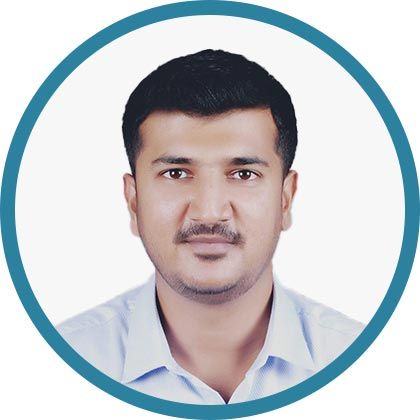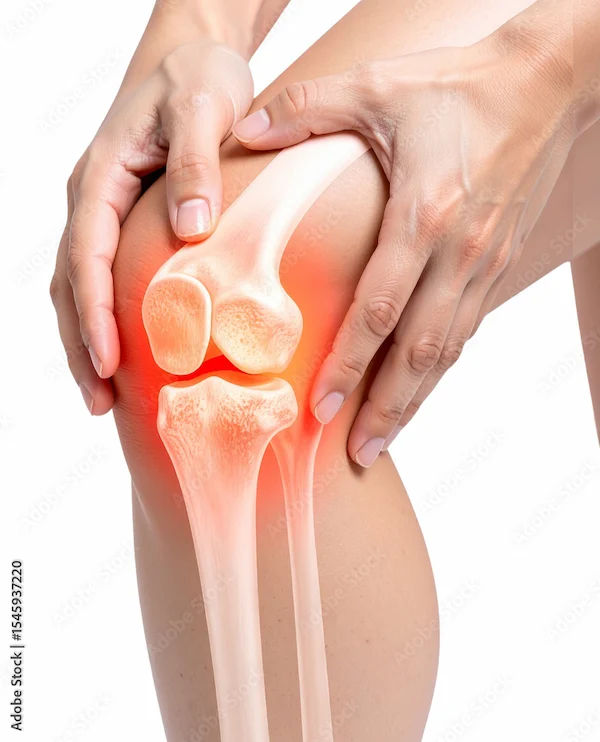Guide to Why Live With Pain It Can Be Cured
Discover modern strategies to relieve and manage pain effectively, explore treatment options, and regain a healthier, more comfortable life.

Written by Dr. Dhankecha Mayank Dineshbhai
Reviewed by Dr. Vasanthasree Nair MBBS
Last updated on 13th Jan, 2026

Introduction
For millions, chronic pain isn't just a symptom; it's an unwelcome roommate that dictates the terms of their life. You may have been told to "grin and bear it" or that it's "just part of getting older." But this outdated advice can be deeply harmful. The notion that you must simply live with pain is not only disheartening but scientifically inaccurate for a vast number of conditions. This article challenges that resignation head-on. We will explore why a cure or significant, lasting relief is a realistic goal for many types of pain. We'll dismantle the flawed logic of silent suffering and map out a modern, proactive path forward, from obtaining a precise diagnosis to exploring cutting-edge treatments that target the root cause, not just the symptom. It's time to shift from managing survival to pursuing a life lived fully, without constant discomfort.
Understanding Pain: It's More Than Just a Sensation
Pain is your body's sophisticated alarm system. It’s a signal that something is wrong. However, when this alarm system malfunctions, as it often does in cases of chronic pain, it can cause suffering long after the initial injury has healed. Understanding this distinction is the first step toward effectively treating it.
Acute Pain vs. Chronic Pain: Knowing the Difference is Key
Acute Pain acts as an immediate, sharp warning. It's the pain from a cut, a broken bone, or surgery. It has a clear cause and typically subsides as the body heals, usually within a few weeks. This type of pain is protective.
Chronic Pain, on the other hand, is the alarm that keeps ringing long after the fire is out. It persists for more than three to six months and often continues without a clear cause. Conditions like arthritis, fibromyalgia, nerve damage (neuropathic pain), and persistent lower back pain fall into this category. The problem shifts from the tissue itself to the nervous system, which has become hypersensitive.
The Pain Cycle: How Your Brain and Nerves Can Get Stuck
Chronic pain creates a vicious cycle. The constant pain signals lead to stress and anxiety, which cause muscle tension, poor sleep, and reduced activity. This, in turn, amplifies the original pain sensation. Your brain and spinal cord become so efficient at sending pain signals that they begin to interpret even non-painful stimuli as painful, a phenomenon known as central sensitisation. Recognising this cycle is crucial because it means effective chronic pain treatment must involve breaking this loop, not just treating a localised area.
Consult a Pain Management Specialist for the best advice
The Flawed "Just Live With It" Mentality
Accepting a life of persistent pain is not a virtue; it's often a result of misdiagnosis, frustration, or outdated medical advice. This mentality can prevent individuals from seeking solutions that could dramatically improve their quality of life.
The Consequences of Untreated Chronic Pain
Living with unaddressed chronic pain has profound consequences that extend far beyond physical discomfort. It is closely linked to:
- Mental Health Issues: Depression, anxiety, and irritability are common companions of chronic pain.
- Social Isolation: The inability to participate in activities can lead to loneliness and relationship strain.
- Physical Deconditioning: Avoiding movement due to pain leads to weaker muscles and stiffer joints, which can worsen the original problem.
- Financial Strain: Lost productivity and ongoing medical costs create significant economic burdens.
Accepting pain as inevitable is no longer necessary. With today's advances in medicine, a more hopeful approach is available.
The Path to a Cure: A Multi-Faceted Approach
The key to curing or significantly reducing pain lies in a comprehensive, multi-disciplinary strategy. What works for one person may not work for another, which is why a personalised plan is essential.
Step 1: Getting an Accurate Diagnosis (The Most Critical Step)
You cannot fix what you don't understand. Vague complaints of "back pain" are not enough. A precise diagnosis is the foundation of any effective pain solution. This may involve consulting specialists, undergoing imaging tests like MRIs, or specific nerve conduction studies. If your condition is complex and a clear cause hasn't been found, consulting a specialist online with Apollo24|7 can help direct you to the right diagnostic path.
Step 2: Exploring Modern Medical Interventions
Medicine has moved far beyond basic painkillers. Today's options include:
- Targeted Injections: Corticosteroid or nerve block injections can reduce inflammation and interrupt pain signals directly at the source.
- Nerve Ablation: A procedure that uses heat to disable nerves causing pain for longer-term relief.
- Advanced Medications: Medications specifically designed for nerve pain (like gabapentinoids) can be more effective than traditional opioids, which come with high risks of dependency.
Step 3: The Role of Physical Therapy and Movement
Contrary to instinct, rest is often the enemy of chronic pain. A physical therapist can design a program to safely strengthen supporting muscles, improve flexibility, and restore function. Techniques like manual therapy, dry needling, and guided exercises are cornerstone non-surgical pain relief options.
Step 4: Mind-Body Connection: Retraining Your Nervous System
Since chronic pain involves the brain, psychological approaches are powerful. Mindfulness for pain, Cognitive Behavioral Therapy (CBT), and biofeedback teach you to change your perception of pain, calm the nervous system, and break the pain-stress cycle. These are evidence-based methods to "retrain" your brain away from pain signals.
Real Stories: When a "Cure" Became a Reality
Maria's Story (Chronic Lower Back Pain): After years of pain attributed to "ageing," Maria saw a physiatrist who diagnosed a specific facet joint issue. A series of targeted injections, combined with a core-strengthening physical therapy program, allowed her to return to gardening pain-free. For her, this was a functional cure.
David's Story (Neuropathic Pain): David suffered from debilitating nerve pain following shingles. Standard painkillers failed. A neurologist prescribed a medication specifically for nerve pain and recommended a mindfulness app. Within months, the constant burning sensation reduced to a manageable occasional twinge.
Your Action Plan: Steps to Take Today
Taking proactive steps today can make a big difference in your health and well-being.
- Document Your Pain: Keep a journal detailing your pain's location, intensity (on a 1-10 scale), triggers, and what provides relief.
- Seek a Specialist: Don't settle for vague answers. Ask your primary care physician for a referral to a pain management specialist, rheumatologist, or neurologist.
- Explore One New Modality: Whether it's a gentle yoga class, a mindfulness app, or a consultation with a physical therapist, take one proactive step this week.
- Focus on Overall Health: Prioritise sleep, nutrition, and stress management.
Conclusion
The journey to overcome chronic pain is undoubtedly challenging, but it is a journey worth starting. The old paradigm of silent suffering is being replaced by a new era of understanding and effective intervention. By abandoning the "why live with pain" mindset and embracing a proactive, multi-faceted strategy, you can reclaim control. Remember, pain is a signal, not a life sentence. The goal is not just to reduce the number on a pain scale, but to restore your ability to engage in the activities and relationships that make life meaningful. Take the first step today by committing to a deeper investigation of your pain; it could be the step that leads you back to a life you love.
Consult a Pain Management Specialist for the best advice
Consult a Pain Management Specialist for the best advice

Dr Darshana R
General Physician/ Internal Medicine Specialist
15 Years • MBBS, MD, DNB (Internal Medicine), Diploma in Allergy, Asthma and Immunology , Fellowship in Diabetes
Bengaluru
Apollo Clinic, JP nagar, Bengaluru
(125+ Patients)

Dr. E Prabhakar Sastry
General Physician/ Internal Medicine Specialist
40 Years • MD(Internal Medicine)
Manikonda Jagir
Apollo Clinic, Manikonda, Manikonda Jagir
(150+ Patients)

Dr. Anand Kumar G S
Pain Management Specialist
12 Years • MBBS, MD, AFIPM, FIPP
Chennai
Apollo Hospitals Greams Road, Chennai
(25+ Patients)

Dr Vishwa Vijeth K.
Pulmonology Respiratory Medicine Specialist
8 Years • MBBS, MD ( Respiratory Medicine)
Bangalore
Apollo Clinic Bellandur, Bangalore
Dr. Hari Prasad Kasturi
Pain Management Specialist
9 Years • MBBS, MD (ANAESTHESIOLOGY)
Chennai
The Guest Hospital, Chennai
Consult a Pain Management Specialist for the best advice

Dr Darshana R
General Physician/ Internal Medicine Specialist
15 Years • MBBS, MD, DNB (Internal Medicine), Diploma in Allergy, Asthma and Immunology , Fellowship in Diabetes
Bengaluru
Apollo Clinic, JP nagar, Bengaluru
(125+ Patients)

Dr. E Prabhakar Sastry
General Physician/ Internal Medicine Specialist
40 Years • MD(Internal Medicine)
Manikonda Jagir
Apollo Clinic, Manikonda, Manikonda Jagir
(150+ Patients)

Dr. Anand Kumar G S
Pain Management Specialist
12 Years • MBBS, MD, AFIPM, FIPP
Chennai
Apollo Hospitals Greams Road, Chennai
(25+ Patients)

Dr Vishwa Vijeth K.
Pulmonology Respiratory Medicine Specialist
8 Years • MBBS, MD ( Respiratory Medicine)
Bangalore
Apollo Clinic Bellandur, Bangalore
Dr. Hari Prasad Kasturi
Pain Management Specialist
9 Years • MBBS, MD (ANAESTHESIOLOGY)
Chennai
The Guest Hospital, Chennai
More articles from Pain Management
Frequently Asked Questions
1. Is it really possible to 'cure' chronic pain?
While some conditions like arthritis may be managed rather than cured, many types of chronic pain, especially those related to soft tissue injuries or nervous system sensitisation, can be significantly reduced or eliminated to the point where they no longer impact daily life. The definition of 'cure' here is a return to normal function without reliance on constant medication.
2. What are the best natural ways to cure chronic pain?
Natural ways to cure chronic pain often focus on reducing inflammation and calming the nervous system. This includes an anti-inflammatory diet (rich in omega-3s, turmeric, and ginger), regular low-impact exercise like swimming or walking, practicing mindfulness and stress-reduction techniques, and ensuring quality sleep.
3. When should I see a doctor about my pain?
You should consult a doctor if your pain is severe, persists for more than a few weeks, doesn't improve with rest, or is accompanied by weakness, numbness, or fever. If symptoms persist beyond two weeks, consult a doctor online with Apollo24|7 for an initial evaluation.
4. What's the difference between a pain management doctor and a surgeon?
A pain management specialist (physiatrist or anesthesiologist) focuses on diagnosing the source of pain and uses a wide range of non-surgical pain relief options like injections, medication management, and physical therapy. A surgeon typically addresses structural problems that require operative intervention. A pain specialist is often the best first stop to see if surgery can be avoided.
5. Are pain medications safe for long-term use?
Over-the-counter NSAIDs (e.g., ibuprofen) can have side effects with long-term use, such as stomach or kidney issues. Opioids are generally not recommended for long-term chronic pain due to high risks of dependency and tolerance. It's crucial to work with a doctor to find the safest, most effective medication strategy for your specific situation.




